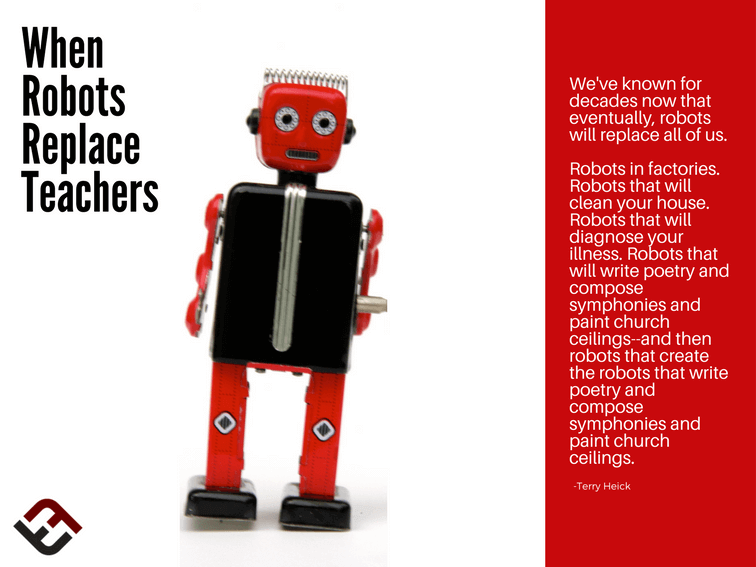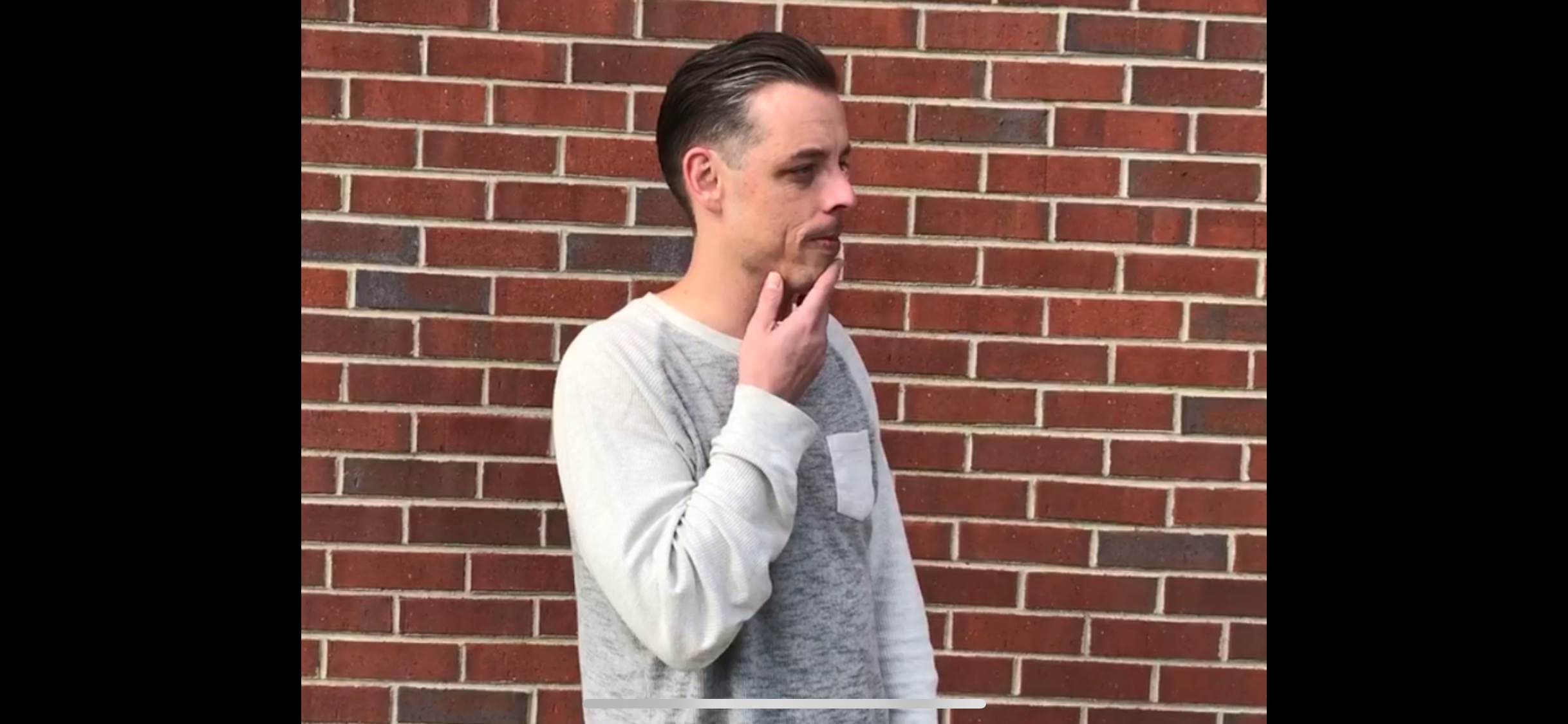
Will Robots Replace Teachers?
by Terry Heick
Will robots replace teachers? Maybe–but it might not end up the way you think.
We’ve known for decades now that eventually, robots will do a lot of things humans have ‘done.’
There will be robots in factories. Robots that will clean your house. Robots that will diagnose your illness. Robots that will write poetry and compose symphonies and paint church ceilings–and then robots that create the robots that write poetry and compose symphonies and paint church ceilings.
And artificial intelligence is also coming. Machine learning will guide your life in ways that you may not notice–more of a gentle nudge in the direction of the fastest way to avoid traffic and get to work, or a suggested alternative product to the one you’re currently browsing on Amazon. These algorithms will be embedded in robots, of course, to diagnose those illnesses and write that poetry. We already have bots that write poems on twitter.
We have algorithmic art, too. Soon we’ll program the imminent robots to act out these otherwise purely digital tasks for the comfort of anthropomorphism. Not only will they know if you’re sad, but they knew you were going to be sad before it happened. They monitor vital signs, evaluate family history, your productivity, sleep patterns, and more, ultimately accessing trillions and trillions of bytes of always-accruing data for patterns.
And together, linked up not only with data, but every other machine and algorithm and its data-scouring efforts to, and a constantly-building history of similar efforts as well, its own intelligence will grow. This will allow it to begin to design its own artificial intelligence, rather than that designed today by humans and our comparatively limited capacity. These algorithms, too, will grow. And this growth will outpace our own ability to stop even for a moment to understand what’s happening.
So because this is all ‘inevitable,’ and because the planet will soon be full of metal-legged creatures constantly working to ‘make our lives easier,’ I thought it might make sense to get settled a bit with the idea.
So what will happen when robots replace teachers? Let’s first visualize a period of transition between all human teachers and all robot teachers. During this time, both robots and teachers will work together, to what degree depends on local policy on the integration of Robot-Based Instruction (RBI), along with Federal programs that incentivize this extraordinary innovation while also funneling dollars towards certain organizations that play nice with government priorities.
See Also What Technology Can And Can’t Replace In The Classroom
The Gates Foundation, too, will likely factor in somehow–perhaps in funding the purchase of carts to carry the batteries that the robots will quickly deplete meeting the needs of every student every day for every standard with a ‘no excuse’ policy added to the backend.
When robots replace teachers…
…teachers can help convince students that it’s not crazy to be taught by a robot.
…teachers can actually have time to plan.
…the robots can support and supplement teaching and assessment of learning while teachers can focus on building relationships with students, their families, and the communities they live in, contribute to, and depend on.
…teachers can save money by not purchasing a self-driving car because the robots will have replaced them too; they’ll show up at the door each morning and carry the teacher to school while reading them the latest headlines in RAN (Robot & Algorithm News).
…teachers can specialize in the abstractions that the robots may have trouble grasping or communicating–irony, compassion, affection, patience, curiosity, etc.
…teachers can brainstorm together to figure out how to market themselves as ‘irreplaceable’ in the home as parents, an uphill battle when working against the well-funded group ‘ORC’ (Organization for Robotic Caretakers).
…teachers could actually get summers off.
…teachers can work part-time to promote the humanities, civic participation, and other programs that had been de-funded back in the twenty-teens as financial support shifted towards ‘more practical curriculum’ and a form of mastery-based and competency-based learning.
…teachers can focus on understanding, wisdom, and meaning-making instead of the procedural elements of pedagogy.
…teachers can participate in professional development alongside the robots in a show of diversity and support for the machines being groomed/trained/programmed to ultimately replace them.
…teachers can’t possibly be blamed for the failure of the existing model of public education.
This post has been updated from a post by the author originally published in 2017

